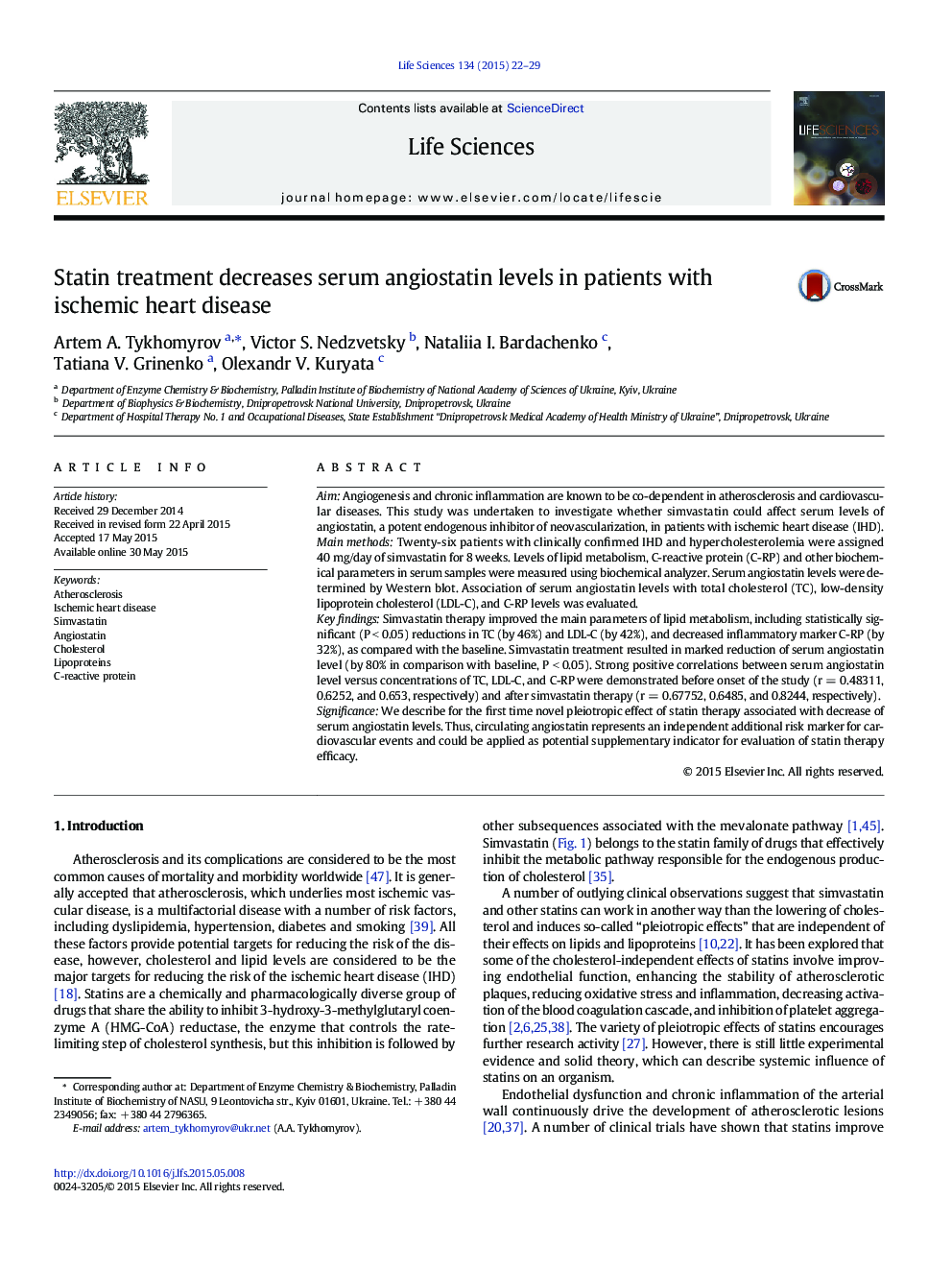| Article ID | Journal | Published Year | Pages | File Type |
|---|---|---|---|---|
| 2550892 | Life Sciences | 2015 | 8 Pages |
AimAngiogenesis and chronic inflammation are known to be co-dependent in atherosclerosis and cardiovascular diseases. This study was undertaken to investigate whether simvastatin could affect serum levels of angiostatin, a potent endogenous inhibitor of neovascularization, in patients with ischemic heart disease (IHD).Main methodsTwenty-six patients with clinically confirmed IHD and hypercholesterolemia were assigned 40 mg/day of simvastatin for 8 weeks. Levels of lipid metabolism, C-reactive protein (C-RP) and other biochemical parameters in serum samples were measured using biochemical analyzer. Serum angiostatin levels were determined by Western blot. Association of serum angiostatin levels with total cholesterol (TC), low-density lipoprotein cholesterol (LDL-C), and C-RP levels was evaluated.Key findingsSimvastatin therapy improved the main parameters of lipid metabolism, including statistically significant (P < 0.05) reductions in TC (by 46%) and LDL-C (by 42%), and decreased inflammatory marker C-RP (by 32%), as compared with the baseline. Simvastatin treatment resulted in marked reduction of serum angiostatin level (by 80% in comparison with baseline, P < 0.05). Strong positive correlations between serum angiostatin level versus concentrations of TC, LDL-C, and C-RP were demonstrated before onset of the study (r = 0.48311, 0.6252, and 0.653, respectively) and after simvastatin therapy (r = 0.67752, 0.6485, and 0.8244, respectively).SignificanceWe describe for the first time novel pleiotropic effect of statin therapy associated with decrease of serum angiostatin levels. Thus, circulating angiostatin represents an independent additional risk marker for cardiovascular events and could be applied as potential supplementary indicator for evaluation of statin therapy efficacy.
